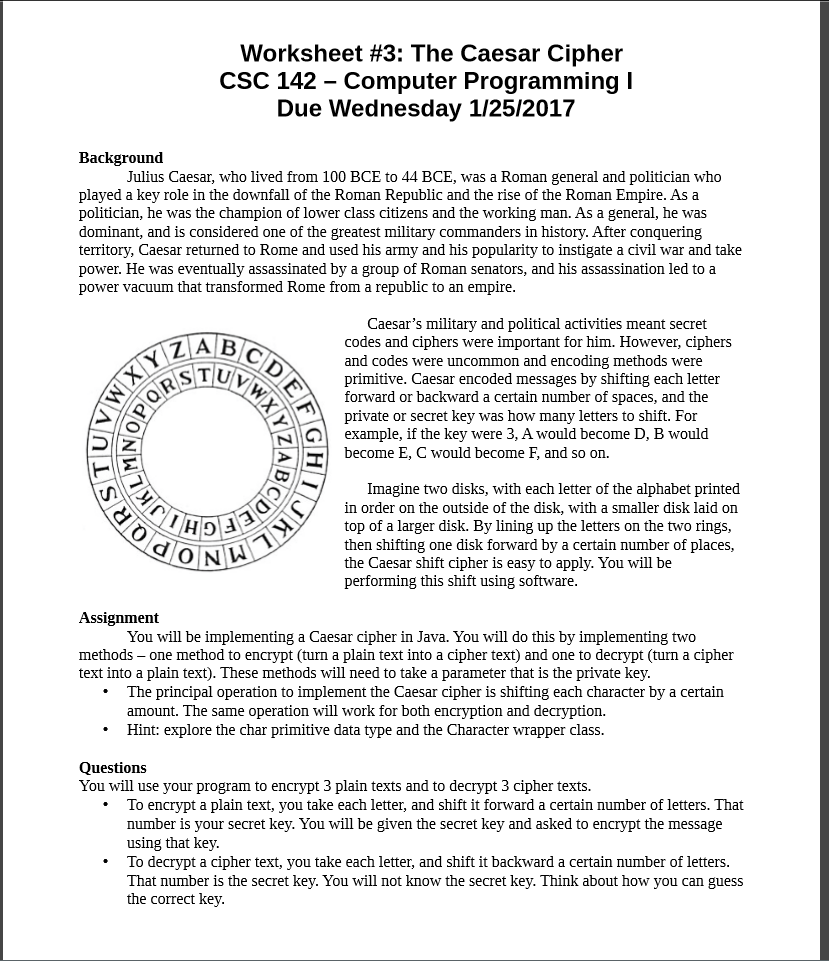

In this plugin you can control the encryption process in two ways:
Caesar cipher calculator code#
Internal working of the local Python version About the code
Caesar cipher calculator cracked#
The Caesar cipher can also easily be cracked with a frequency analysis. With only 25 meaningful keys, it would be quite easy to test for all possible keys until the correct one is found (brute-force analysis). Using the capital letters A-Z as alphabet allows 26 different keys, with the 26th key rendered meaningless because it would map each letter to itself. The number of possible keys is identical to the size of the given alphabet. The upper alphabet is called 'plaintext alphabet' and the lower alphabet is called 'ciphertext alphabet'. The word example would be enciphered to hadpsoh. The letter A becomes the letter D, B is replaced by E, and C replaced by F, etc. Shifting the bottom alphabet 3 positions to the right yields the following result:ĭ E F G H I J K L M N O P Q R S T U V W X Y Z A B C The number of positions is the value of the key. Now, the bottom alphabet is shifted by an arbitrary number of positions. The first step is to write the alphabet down two times.Ī B C D E F G H I J K L M N O P Q R S T U V W X Y Z The classic version uses the capital letters A-Z, but, in principle, an arbitrary alphabet can be used. Caesar used this relatively simple form of ciphering to encipher military messages. The Caesar cipher is named after the Roman military and political leader Gaius Julius Caesar (100 BC – 44 BC). Parser.add_argument("-a", "-alphabet", help="defined alphabet", type=str)Ĭaesar(ssage, args.key, args.alphabet, args.crypt_modus, args.keep_chars, args.blocks_of_five) Parser.add_argument("-ka","-keep-non-alp", help="keep non-alphabet characters", dest="keep_chars", action="store_true") Parser.add_argument("-m", "-message", help="message for encrypt / decrypt", type=str, required=True) Parser.add_argument("-f", "-blocks-of-five", dest="blocks_of_five", action="store_true") Parser.add_argument("-d", "-decrypt", dest="crypt_modus", action="store_false") Parser.add_argument("-e", "-encrypt", dest="crypt_modus", action="store_true") Parser.add_argument("-k", "-key", help="key for encrypt / decrypt", type=int) # if blocks_of_five is true, append a space after every 5 characters # if the symbol is not in alphabet then regard block_of_five and b_encrypt New_index = (index - key) % len(alphabet) New_index = (index + key) % len(alphabet) If(b_encrypt): # if text is to be encrypted # if character is in alphabet append to ciphertext Def caesar(text, key, alphabet, b_encrypt, b_keep_chars, b_block_of_five):


 0 kommentar(er)
0 kommentar(er)
